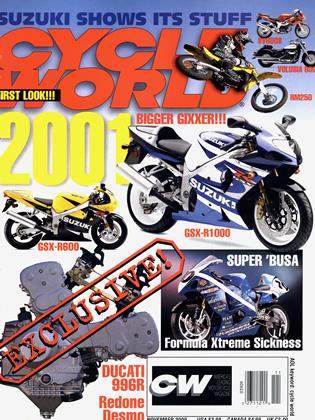RACE FUEL FOR THE STREET?
PUMP GASOLINE HAS changed a lot since the 1970s. When Arab oil embargoes cut supplies, gasoline was extended with lower-energy fuel components called oxygenates. The usual choice was alcohols, creating problems with corrosion and water. If thirsty alcohols absorb enough water— from the air or other sources— phase separation can occur, as the alcohol-water portion settles to the bottom of tanks.
About the same time, the mandated phase-dow n of the effective anti-knock additive, Tetra-Ethyl Lead (TEL) began. This was to prevent lead from inactivating the new catalytic converters in cars. Another path to adequate fuel anti-knock ratings had to be found. One was intensified catalytic cracking of petroleumbreaking down heavier molecules to form lighter ones in the gasoline range of 4 to 7 carbon atoms per molecule. This produced lots of “light ends”-light, highly volatile components, leading to summer vapor lock and EPA concerns about evaporation loss. Lower volatility standards were imposed.
Without these light components, yet another source of octane number had to be foundsomething with lower volatility, without the water problems of the alcohols. The top candidate was Methyl Tertiary Butyl Ether (MTBE). Production plants for this new material were constructed, adding a new acrid smell to gasoline.
Unfortunately, MTBE is just water-soluble enough to be carried by ground water, and the earth contains few bacteria that “eat”
MTBE. Leaking underground fuel tanks released MTBE into ground water. A flood of reports of MTBE in tests of well water has caused calls for an instant ban.
What next? Just delete oxygenates from the Clean Air Act Amendment of 1990? Many of the rich-running, carbureted older cars targeted by the MTBE program have now gone to their electric-furnace Valhalla. Switch back to alcohol? Midwestern senators favor this because their constituents’ corn ferments easily into ethanol. Another group offers a new strain of MTBE-eating bacteria to inject into tainted aquifers. Gasoline companies have their own views. In the end. the winner is whichever group of lobbyists (ably assisted by the usual hired scientists) speaks most persuasively in the halls of government.
Ironically, one aspect of the reformulated gasoline that California’s Air Resources Board (CARB) is considering is already normal in many racing gasolines: the absence of “heavy ends,” lowvolatility components that by not evaporating, pass unburned through engines. Aside from this issue, the big difference between racing and pump gasolines is octane number. Race engines need it to prevent knock with their high compression ratios, and race teams happily pay $30 a gallon to get it.
Kevin Cameron
 View Full Issue
View Full Issue
More From This Issue
-
 Up Front
Up FrontShameless Plugs
November 2000 By David Edwards -
 Leanings
LeaningsThe Convertible
November 2000 By Peter Egan -
 TDC
TDCGp Four-Strokes
November 2000 By Kevin Cameron -
 Departments
DepartmentsHotshots
November 2000 -
 Roundup
RoundupDan Gurney's Alligator: Alternative Corner Carver
November 2000 By Kevin Cameron -
 Roundup
RoundupHart Attack
November 2000 By Eric Johnson







